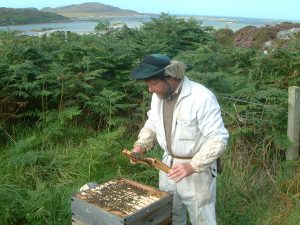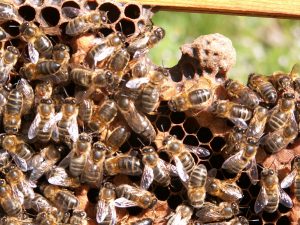
Colonsay Black Bee Reserve
The Hebridean islands of Colonsay and Oronsay have one of the few pure and isolated populations of Apis mellifera mellifera (Amm) in Europe. Established during the 1970’s and 80’s from isolated Scottish stocks, its importance to genetic conservation was recognised by the Scottish Government, when they passed The Beekeeping (Colonsay and Oronsay) Order 2013.
Colonsay has had a long tradition of helping to conserve Scotland’s native Black Bees. During the 1940’ and 50’s, Joseph Tinsley bee inspector for the West of Scotland College of Agriculture used the island’s isolation to select and breed lines of Amm.
Over the past 40 years the island’s 60 stocks have been carefully selected to improve the overall genetic makeup, particularly with regards to gentleness and productivity. At the same time inbreeding has been avoided. Colonsay’s disease free stocks play an important role supplying honeybees to those in the scientific community studying honeybee diseases and population genetics.
Colonsay’s Black Bees have been primarily kept and selected for commercial honey production. However, always with the overarching view, that there will simply be no long term commerce without careful conservation.
Queen mating on cool Atlantic islands is problematic. In addition to the honey crop around 100 free mated queens and 20 nucs are produced annually.

Andrew Abrahams photos and text.
